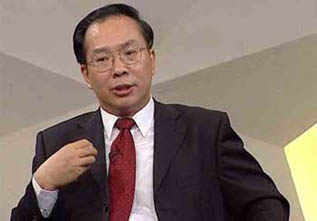| Home / Government / Focus News | Tools: Save | Print | E-mail | Most Read |
| Transparency Key to Public Faith |
| Adjust font size: |
A senior central government information official has urged local governments to be more open and transparent, saying their attempt to block media coverage of negative incidents was "too naive". Wang Guoqing, vice-minister of the State Council Information Office, said "blocking bad news" was becoming more difficult, given the wide use of new information technologies such as the Internet, mobile phones and the central government's commitment to information transparency.
"It has been repeatedly proved 'information blockage' is like walking into a dead end," Wang told CCTV. Wang revealed that some local government spokespersons used to believe that some 90 percent of "bad news" could be muffled while only 10 percent would be unluckily exposed by the media. However, because governments at all levels had started to introduce a spokesperson scheme, information blockage was becoming increasingly outdated and impractical, he said. Wang gave the four-year-old spokesperson scheme a score of 60 points on a full-score of 100-point evaluation system. The recent brick kiln slave scandal highlighted the importance of a cooperative and forthcoming government to the media. Having uncovered the illegal practice in April, Shanxi government had started cracking down on illegal brick kiln owners and rescued the first batch of slaves. But keeping the information out of media spotlight until the scandal came under full public glare left the Shanxi government in a very vulnerable position. "Had the government kept the media and the public informed, we would have seen different result on discussion of officials' accountability," Wang said. Mao Shoulong, a professor at Beijjing-based Renmin University, said lots of local governments were still weighing the pros and cons of information transparency. They thought "saying something wrong" could be as bad as gagging the media. "With the implementation of The Decree of Government Information Openness, by which the quality of being forthcoming will be accounted as the officials' accountability, things will be better,"Mao said. Brushing media aside in handling incidents of public interest was destined to fail as public faith and support would be lost. "We should enlist the media in any emergency plans," Wang said. In the wake of the openness decree, which was approved in January and due to take effect next May, Wang said spokespersons alone were not enough to satisfy the public's demand for information. Government and Party leaders at all levels should hone their news sense and improve media communication skills, he said. (China Daily July 16, 2007) |
| Tools: Save | Print | E-mail | Most Read |
| Related Stories |
|
||||
|
|
||||||||||||
|
| Links | |||||||||||
|
